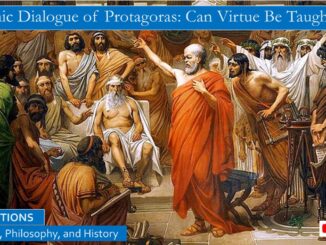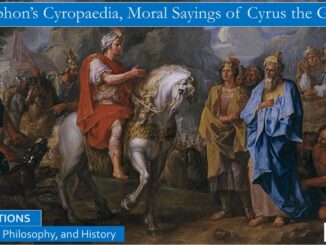
Platonic Dialogue: Protagoras and Socrates Debate: Can Virtue Be Taught?
Socrates wants his students to think for themselves, so we cannot assume that Socrates really believes that virtue cannot be taught. After all, at the end of the dialogue, Socrates asserts that true knowledge leads to virtue. Perhaps he seeks to dissuade the youths in Athens from studying under the Sophists, who claim to be able to teach anything, for a fee, a generous fee, of course.
What example comes to mind if we assert that virtue can be taught? We need to go no further than the Book of Judges, which is filled with horrible stories that atheists love to parade as proof that God is not a loving god. We must keep in mind the constant theme of the Book of Judges: Everyone in Israel did what was right IN HIS OWN EYES. Which is the slogan of the Sophists. […]

